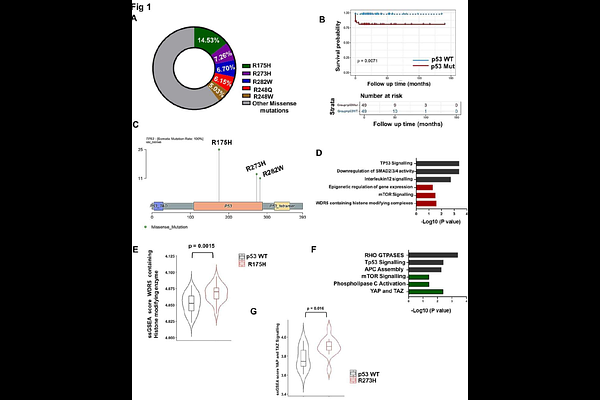Gain of Function p53 mutant R273H confers distinct methylation profiles and consequent partial or full EMT states to colon tumour

Gain of Function p53 mutant R273H confers distinct methylation profiles and consequent partial or full EMT states to colon tumour
Rani, H.; Subhadarshini, S.; Jolly, M. K.; Mahadevan, V.
Abstractp53 is the second most frequently mutated gene in colorectal cancer. While different p53 mutations have been correlated with metastasis, the distinct phenotypes exhibited by site-specific mutations of p53 are not well elucidated. Here, we analyse transcriptomic and methylation data from TCGA-COAD cohort to understand the epigenetic impact of three most prevalent hotspot mutations of p53 (R175H, R273H and R282W). We observed that p53 R273H mutation associates with a partial epithelial-mesenchymal transition (pEMT) state and metastatic progression. In vitro ChIP-seq experiments conducted on p53R27H harbouring HT29 cells revealed an enrichment of mutant p53 R273H at pEMT or mesenchymal gene sets. Further, simulations from a gene regulatory network incorporating the interactions of p53R273H with EMT regulators explain how this mutation shapes the phenotypic landscape accessible to cancer cells. Finally, single-cell transcriptomic analysis of colorectal tumours reveals R273H-linked enrichment of partial and mesenchymal EMT phenotypes across tumour subpopulations in CRC. Overall, we identified distinct epigenetic regulation regulating partial EMT and consequent aggressive behaviour triggered by p53R273H. These findings can help devise effective therapeutic strategies for p53 mutant specific colon tumours.